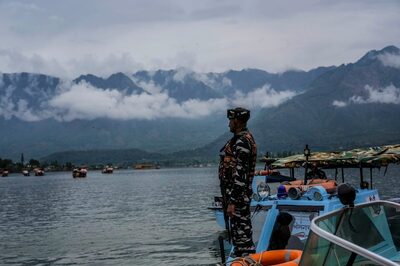
views
PRISTINA, Kosovo: The European Union’s mission in Kosovo on Sunday called on ethnic Albanians in the country to give blood samples to help identify the remains of people missing for more than two decades since they were taken away by Serb police and paramilitary forces.
The EU Rule of Law Mission, or EULEX, established in Kosovo after the 2008 independence declaration, made the call on the International Day of the Victims of Enforced Disappearances.
Kosovar authorities say 1,643 ethnic Albanians are still unaccounted-for since the 1998-1999 armed uprising by ethnic Albanian separatists that led to a bloody Serb crackdown and an international humanitarian crisis. It ended after a NATO bombing campaign.
Initially, 10,000 people were reported as dead and some 6,500 missing, but authorities who have recovered remains from mass graves say only 1,643 people now remain unaccounted-for.
EULEX expert Tarja Formisto said the lack of new and credible information on the exact location of graves has made the process of locating the remains very difficult. Some of the missing are believed to be in mass graves, others buried individually in clandestine graves in cemeteries and other sites.
To add to the problem, Formisto said that some families of the missing refuse to provide samples for DNA analysis.
I estimate that up to 20 missing persons could be identified through DNA if the families of all missing persons provide blood samples, she said.
The EU mission has conducted 656 field operations over about a decade, resulting in the identification of the remains of 316 individuals previously listed as missing.
Only eight cases were solved in 2019, and so far this year the whereabouts of only three people have been traced.
The International Committee of the Red Cross in Kosovo, too, urged Kosovars, Serbs and the international community to work harder in the identification process.
The main obstacle to a swifter progress is the lack of new information that could lead to new grave sites, said ICRCs Kosovo head, Agim Gashi.
Local experts want the international community to exert more pressure on the Serbian government.
Kosovo declared independence in 2008, and Serbia does not recognize it as a separate state. Tensions between the two remain high. But efforts to identify remains from both sides of the brutal war have gone on slowly in both Serbia and Kosovo to determine if missing individuals can be declared dead and the remains repatriated.
The international community should exploit any tool at its disposal to exert pressure on Serbia and enlighten the fate of the missing and every crime in Kosovo, said Kosovar President Hashim Thaci.
___
Semini reported from Tirana, Albania.
Disclaimer: This post has been auto-published from an agency feed without any modifications to the text and has not been reviewed by an editor



















Comments
0 comment